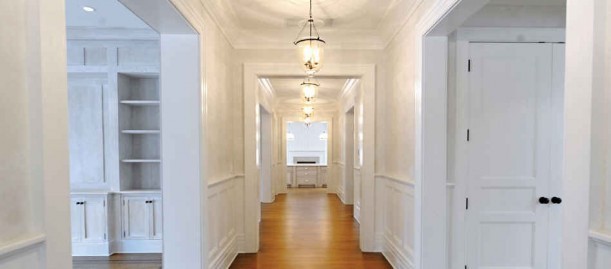
Newly built homes have gotten smaller and will likely keep getting smaller as builders hope to cut construction costs.
A new survey by John Burns Research and Consulting (JBREC) polled architectural designers to determine home features they are eliminating to make the most of a space yet cut construction costs. The survey found that many architectural designers have begun removing hallways to reduce overall home sizes.
"All that Tetris we played in the '90s has finally paid off. Instead of shrinking rooms to reduce overall home size, a common tactic among our architectural designers was to eliminate unnecessary circulation space," JBREC wrote in its US Residential Architecture and Design Survey report.
"Essentially, we're Tetris-ing the functional rooms together, avoiding wasted square footage on non-functional areas like hallways," the report continued.
In addition to axing hallways, the designers said new homes will likely see entry-level and move-down designs diverge. For homes with entry-level designs, this means smaller eat-in kitchens, petite outdoor spaces, and fewer storage options. However, for homes with move-down designs, storage spaces will likely be expanded.
Furthermore, the designers said most new homes will have flex space. These rooms have smaller square footage and are usually turned into a "pocket office" or a nursery.
Why Are Designers Reducing Living Space
Home prices in the US have soared, with the median sale price of houses soaring to a record-high of $397,954 in June, marking a 4.9% year-over-year increase. It is also the biggest annual increase recorded since March 2024.
Meanwhile, the price of new construction homes increased by 2.5% in 2023, peaking at nearly $441,000 in August last year, according to data from the U.S. Census Bureau. In contrast, the median household income in the US in 2022 was $74,580, marking a 2.3% decline from 2021.
The elevated prices led housing experts to warn of the death of starter homes in the US.
"To get a lower-priced home built under $300,000, you'll either have to build a smaller home or homes in a higher-density setting," Ali Wolf, Zonda's chief economist, told Fortune's Alena Botros in an interview last year.



